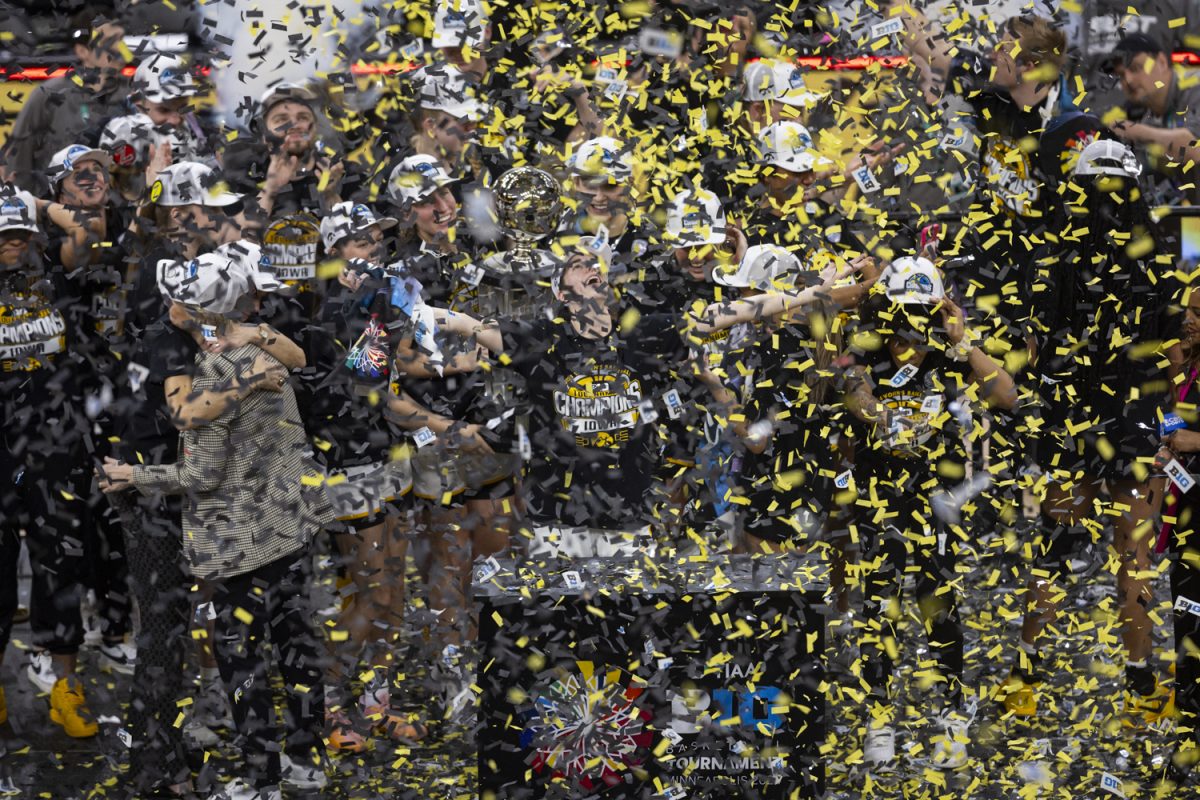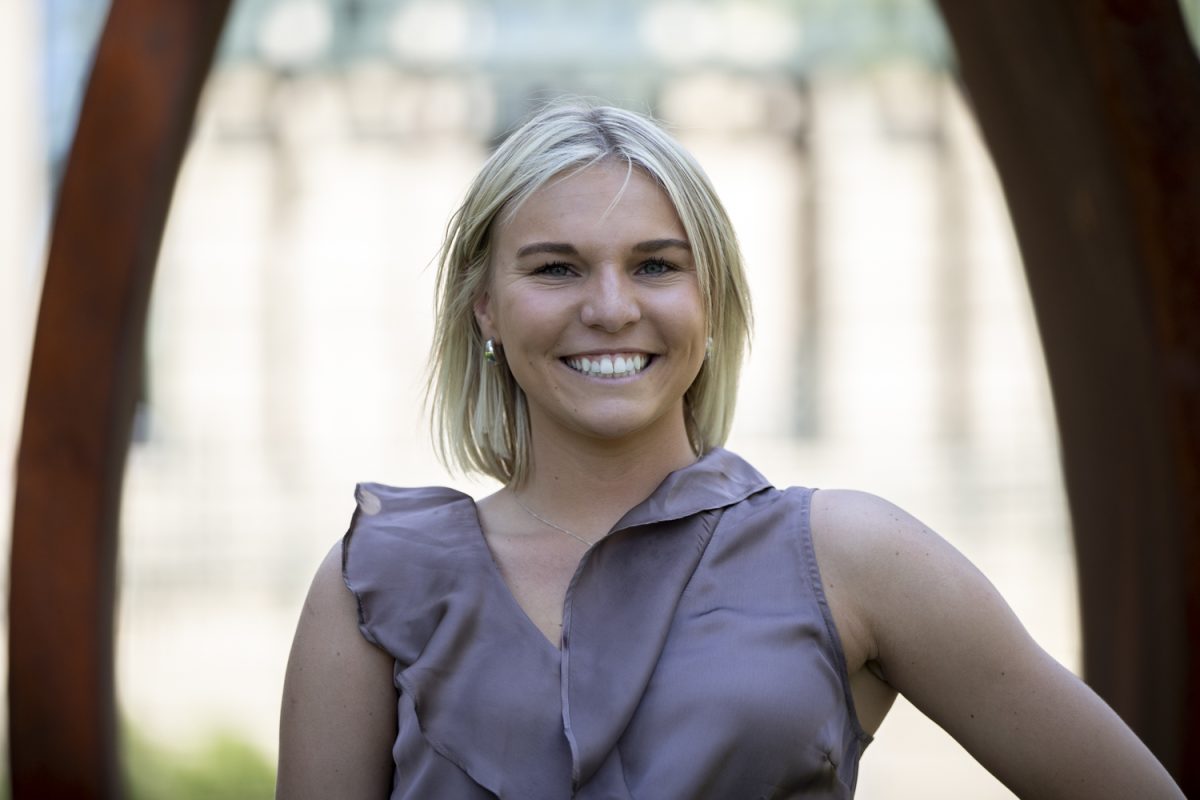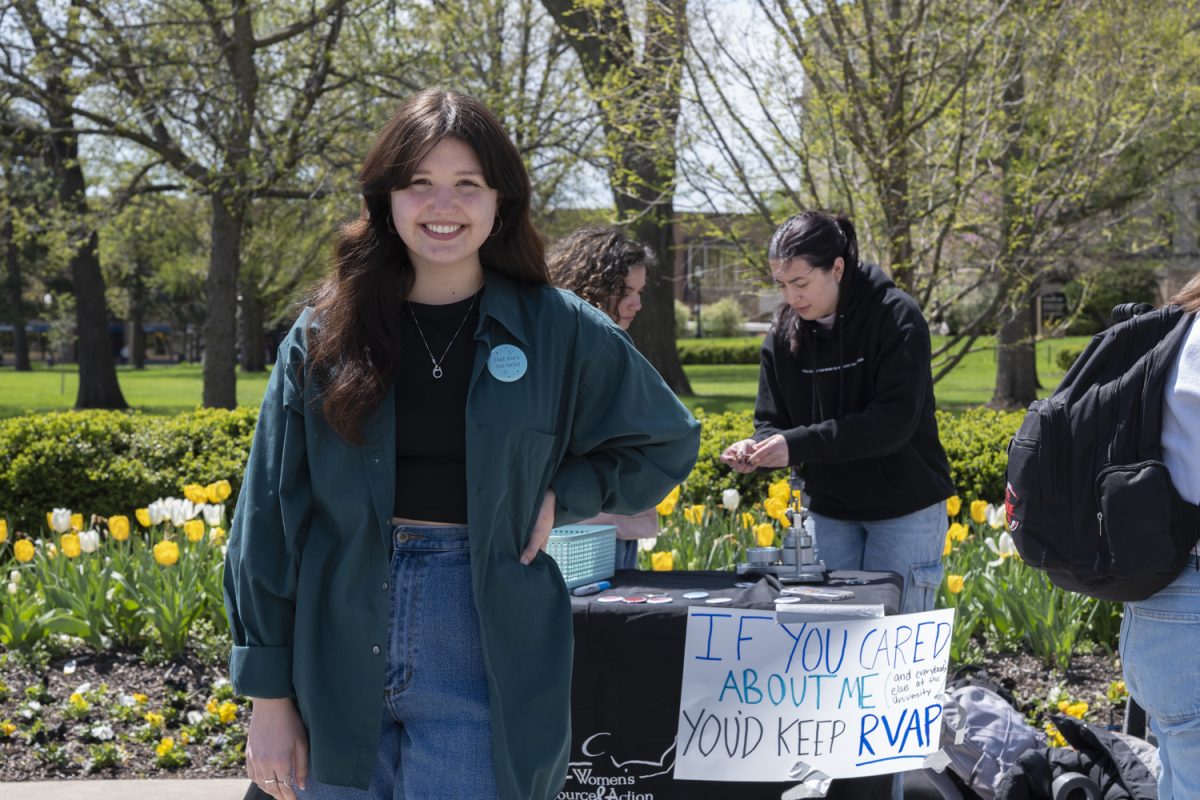“I kind of like the uphill fights, they keep you focused,” former Maryland Gov. Martin O’Malley said. He does not speak like a presidential candidate who sits at the bottom of national polls. In fact, it seems more like he’s waiting to say, “I’ve got them right where I want them.”
In a Question & Answer session with the Daily Iowan Editorial Board, the so-called “Rock and Roll” governor (a moniker he earned for bringing his guitar along the campaign trail) projected an image of a man as relaxed as he was composed.
Facing an uphill battle and watching both a Republican and Democratic field dwindle around him, O’Malley refuses to change his positions and relies heavily on his consistency as a true member of the Democratic Party from Day 1.
While searching for an outlet to charge his tablet, the former governor remarked that we would get “O’Malley unplugged.” But he turned serious in talking about the hope he had for his campaign.
“One of the rules of thumb is that the results on caucus night never bear any relation to what the polls say in November,” he said. “It’s a remarkable thing; it’s the hope that keeps me going.”
An hourlong meeting with him proved that the mild-mannered underdog is preparing for an offensive and is sharpening his sword for the long road ahead. He realizes that he has to categorically separate his name from the other Democratic candidates, and he has been awarded this opportunity by simply representing, since the beginning of his political career, the ideals of the Democratic Party.
For example, when asked about the newfound support from Sen. Bernie Sanders, I-Vt., for removing marijuana from the list of Schedule 1 drugs, O’Malley was quick to inform the room that this was support he showed two months ago. O’Malley also claimed opposition to the Trans-Pacific partnership eight months ago and opposition to the Keystone XL pipeline a year ago, sharply criticizing his competitors for their failure to adhere to policy positions they’d previously supported.
In addition to his consistency in support or condemnation of a variety of national policies and federal actions, O’Malley is a realist. His policies focus less on fundamentally changing the definition of American government and more on taking the principles upon which the United States was crafted and modernizing them to reflect the important issues of today. For example, he stressed his opinion that Sanders’ plan for tuition-free college doesn’t look at the whole picture and fails to show how U.S. institutions have responded — by simply increasing tuition. He didn’t use phrases such as “throw out” or “start over,” instead choosing to focus on building upon the foundation of U.S. government — flawed though it may be in some areas.
He knows where he stands and understands what it is he must do to win this race. At one point, in reference to the candidates who represent a departure from traditional politics (Donald Trump, Ben Carson, even Sanders), O’Malley said, “Parties rarely ever nominate anger.”
But O’Malley also noted that he is a departure from the status quo of politics, embodied by Jeb Bush and Hillary Clinton. His place as a middle ground between the outlandish and archaic is nothing new to the voting public. He likewise pointed to his experience at the executive level of government — as mayor of Baltimore and governor of Maryland — experience that his fellow candidates lack.
“We’re not very good at staying thematic as a party, and people lose sight of us,” O’Malley said toward the end of the hour. It would appear that as the Iowa caucuses draw near, he is ready to take a commanding position based on the belief that, outside of name recognition, he’s the candidate the Democratic Party both needs and wants — the Democrats just don’t know it yet.













